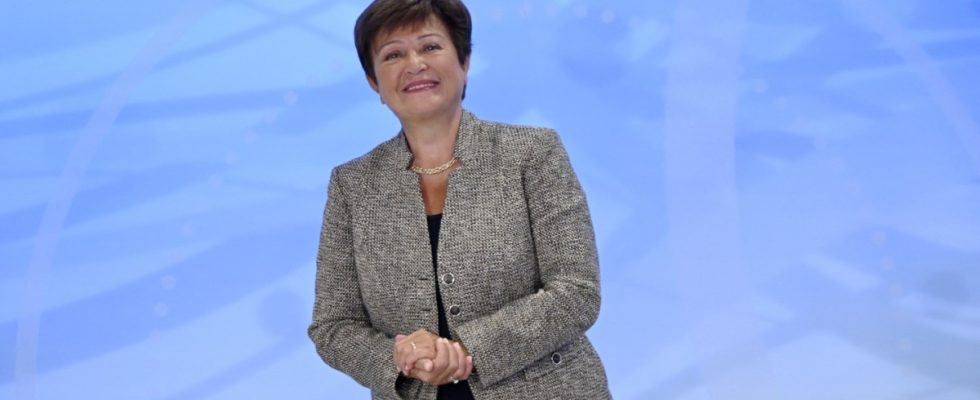She doesn’t always make things easy for those around her, not even those who stand by her side: Sometimes Kristalina Georgieva laughs a little too loudly, and she sometimes brushes off internal criticism quite harshly. And not every government is thrilled that the International Monetary Fund (IMF) has for some time now not only assessed the economic and financial situation of each member country in its annual audit reports, but also commented on climate, women’s and social policy issues. And yet, when it came to the question of whether the Bulgarian should be granted a second term in office after five years at the helm of the IMF, the decision was quickly made: Georgieva could continue.
The decision immediately before the start of the spring meetings of the IMF and World Bank this Monday has a political and a personal touch. As far as politics go, it’s pretty simple. After an informal agreement between the EU and the USA, the Europeans appointed the head of the monetary fund and the Americans appointed the president of the World Bank. Almost all other countries in the world consider this deal to be no longer up to date and are demanding that candidates only be selected based on their suitability and no longer based on their origin. If the EU had dropped Georgieva, the fundamental dispute would have broken out again with great force.
As far as the economist’s personal track record is concerned, even critics credit her with leading the IMF through stormy times with a steady hand, reacting quickly to crises and providing help to countries in need without ideological blinders. And as is well known, there has been no shortage of crises in the past five years: six months after she took office, the corona pandemic broke out, followed by the Russian attack on Ukraine and the dramatic increase in food and energy prices in particular, which is particularly affecting people causes massive problems in poorer regions of the world.
Georgieva says she is “an eternal optimist”
Georgieva responded to the turmoil by granting loans totaling more than $300 billion (€280 billion) to developing countries alone. The volume of loans with zero interest rates, which benefit the world’s poorest countries, increased fivefold. Critics such as top US economist Kenneth Rogoff accused the former chief executive of the World Bank of being too tied to the thinking of her ex-employer and of wanting to transform the IMF into an aid organization modeled on its sister institution. Georgieva, who says she is “an eternal optimist,” countered unequivocally: “The world is changing, and that means we have to reinterpret our goals,” she said in a statement two years ago Mirror-Interview. “The pandemic and the war are shocks from outside. Countries that are hit by them have done nothing wrong. How should we react? Certainly not by relying on our traditional instruments of structural adjustment.”
There was also occasional criticism, especially from conservatives, of Georgiewa’s allegedly overly generous line towards China. Just this March, Republican lawmakers sent a letter calling on US Treasury Secretary Janet Yellen to block Georgiewa’s re-election. Reason: The 70-year-old had long watched idly by Beijing’s attempts to keep the exchange rate of the national currency, the renminbi, artificially low and to conceal the country’s true debt situation.
Too close to the World Bank and too China-friendly at the same time? This is a combination that has already brought the former EU Commissioner massive negative headlines. In 2021 it became public that Georgieva was said to have doctored the institution’s so-called Doing Business Report in favor of the People’s Republic during her time at the World Bank. According to the accusation, China agreed to the long-awaited increase in the World Bank’s share capital. The report provides information about how easy or difficult it is to do business in each of the 189 member states. For many governments, the ranking is very important because it can determine how much money international companies and investment funds pump into an emerging country. At the end of a lengthy investigation, the IMF’s 24-member Executive Board sided with the managing director, but doubts remained.
Yellen and President Joe Biden had also toyed with the idea of dropping Georgieva at the time. After her re-election on Friday, nothing more was heard about it. According to Yellen, she is looking forward to “continued collaboration.”

